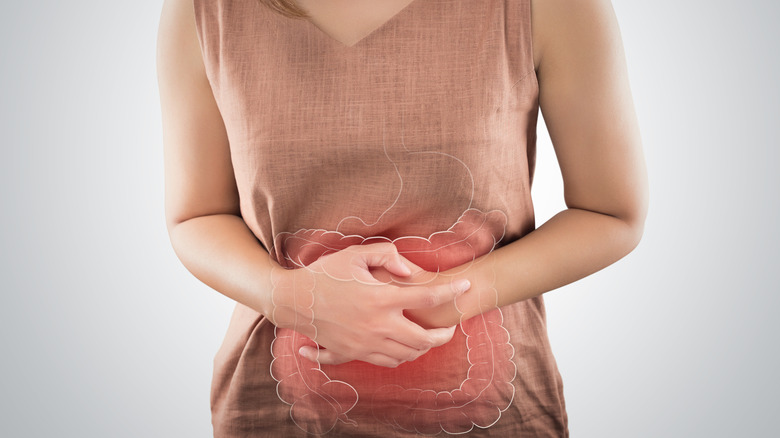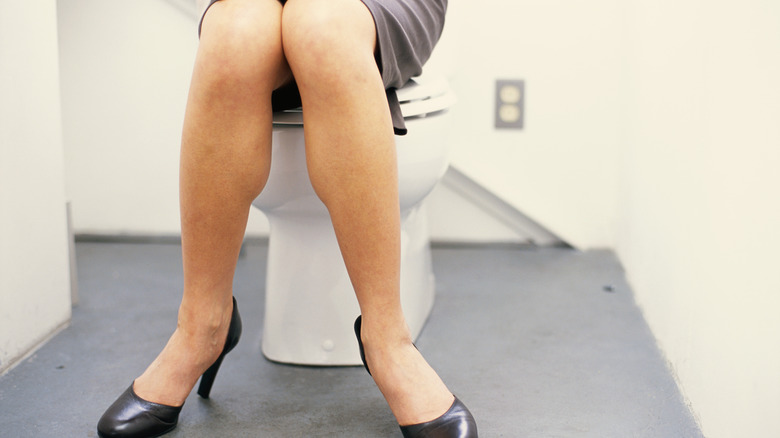Diverticulitis Versus IBS: What's The Difference?
Both diverticulitis and irritable bowel syndrome (IBS) present with many of the same symptoms, according to Digestive Diseases. These symptoms include abdominal pain, diarrhea, and constipation. According to the IBS Treatment Center, IBS and diverticulitis are so similar that, in many cases, a proper diagnosis can't be detected without a doctor conducting a CT scan of the abdomen or a colonoscopy. In fact, a 2020 study published in the Journal of the American Board of Family Medicine showed that, without imaging, approximately one in five cases of diverticulitis were misdiagnosed.
There is some overlap between the two, as evidenced by a 2014 study published in the American Journal of Gastroenterology, which found that certain diverticulitis patients in Japan had a higher risk of developing IBS. However, despite the similarities in symptoms, Capalaba Natural Health notes that IBS and diverticulitis are two very different ailments. For starters, diverticulitis is considered a disease, while IBS is a gastrointestinal disorder. Knowing what you may be facing can help you to treat the condition properly.
Both conditions can be debilitating
Diverticulitis is the result of a condition called diverticulosis, when small pouches, called diverticula, form along the wall of the digestive tract (via eMedicineHealth). When these pouches become inflamed, diverticulitis is the result. People with diverticulitis experience such symptoms as abdominal pain, nausea, bleeding, fever, and either constipation or diarrhea. In some cases, surgery may be necessary, although usually a high-fiber diet or fiber supplementation can help manage the disease.
According to the International Foundation for Gastrointestinal Disorders, IBS is a gastrointestinal disorder marked by abdominal pain, bloating, constipation, and diarrhea. There is no one cause identified for IBS, but some potential causes include an over-active or under-active immune system, changes in the gut microbiota, or possibly a result of food poisoning or a bowel infection. According to a 2012 study published in the American Journal of Gastroenterology, IBS is more common in women than men, but the IBS Treatment Center notes that approximately 15 million men suffer from the condition as well.
Unlike diverticulitis, which can be treated and healed, there is no cure for IBS (via Healthline). However, you can ease your symptoms by altering your diet, avoiding spicy, processed, or fatty foods, and taking probiotics. To keep both conditions at bay, you should stay hydrated, keep a food journal, exercise regularly, and avoid tobacco, caffeine, and alcohol. Most importantly, if you begin feeling symptoms, consult with your doctor to determine what you're actually dealing with and decide the best treatment.


